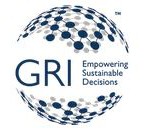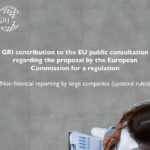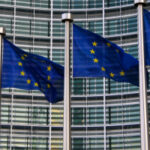
As the world’s largest single market, the EU is an influential leader for setting global sustainability reporting standards. While we’ve seen significant growth in the number of organisations reporting sustainability impacts, more needs to be done to improve the disclosures, writes Tim Mohin, chief executive of Global Reporting Initiative (GRI), an Amsterdam-based international, nonprofit organisation that helps companies and other organisations understand and communicate their sustainability impacts.
In the early months of 2020 we heard much from the European Commission about the ‘Green Deal’ – an ambitious package of measures for the EU to achieve carbon neutrality by 2050. Yet in just a few short weeks, priorities in Europe and around the world have necessarily shifted to combating the coronavirus pandemic.
Against this backdrop, it’s notable that, in a meeting on 26 March, EU leaders re-committed to the ‘green transition’, as they start to prepare recovery plans for the COVID-19 crisis. This position was strongly reinforced by Commission Executive Vice-President Frans Timmermans on 1 April, when he said the EU’s targets to cut greenhouse gas emissions are “on track” and they would continue to encourage partners around the world to “raise ambition” in support of the global climate agenda.
Next, on 11 April, a powerful letter signed by thirteen environment ministers of EU governments emphasises that “we must not lose sight of the persisting climate and ecological crisis” – calling on the Commission to use the Green Deal as the framework to rebuild the economy after the pandemic.
The signs therefore are strong that the Green Deal remains very much on course. Backed by €1 trillion investment over the next decade, the EU is showing a level of commitment that is above and beyond that of the world’s other major economies. It is reassuring that even as we battle the pandemic, the European Commission has the foresight to press ahead with these crucial legislative initiatives.
The sustainable finance workstream of the Green Deal is an important litmus test for whether it can achieve private sector buy-in. It acknowledges the clear link between disclosing corporate impacts and encouraging investment in sustainable business practices.
Non-financial reporting directive
Achieving this requires changes to the status quo and the Commission has already confirmed that its Non-Financial Reporting Directive (NFRD) needs revision, with a public consultation running until 14 May.
Since 2018, the NFRD has required large companies in the EU (those with more than 500 employees) to publish information on their performance on environmental protection, social responsibility, human rights, anti-corruption and diversity. This has been a progressive step, yet an analysis published in February raised serious questions about variation in the quality and comparability of disclosed data, emphasising why urgent steps are needed to improve corporate reporting. At Global Reporting Initiative, we share these concerns.
While we’ve seen significant growth in the number of organisations reporting sustainability impacts, more needs to be done to improve the disclosures. For reporting to be effective in driving change, the information must be reliable, comparable across countries and sectors and focused on the most important issues. We commend the EU policy initiative to strengthen these aspects of sustainability reporting.
The Commission has set out an intention to establish sustainability reporting standards based on the “best and most widely accepted elements of what exists.” That’s important because if the EU is to improve the effectiveness of the NFRD, then it has to build on what’s working well and avoid adding unnecessary burden on reporting companies.
Developed with an independent, multi-stakeholder process, the GRI Standards are the world’s most widely used sustainability disclosure framework by companies, governments and capital markets. The framework requires companies to report on their most important impacts to people and the environment rather than only those issues important to their finances. These attributes make the GRI Standards ideal for the foundation of the updated NFRD.
As the world’s largest single market, the EU is an influential leader for global sustainability. History has shown that the environmentally and socially responsible policies implemented by the EU are adopted around the world. Many multinational companies that comply with sustainability requirements in Europe will apply the same approach to their operations in other parts of the world.
With the international community coming together to fight the COVID-19 pandemic, collaboration between the public and private sectors has never been more important. When the world emerges from this crisis, we need to continue this collaboration to advance sustainable and inclusive development. Europe’s leaders are to be commended for committing to a green transition. Now, more than ever before, this is the kind of bold leadership the world needs.
This article was first published on the website of EurActiv



